Every woman who has ever been pregnant has a laundry list of wacky and uncomfortable symptoms that go along with gestating another human being.
Still, many women have no idea that intense itching during pregnancy may be a sign of a very serious condition. It's called cholestasis of pregnancy, and lots of mamas out there have never even heard of it.
Unlike common pregnancy conditions such as pruritic urticarial papules and plaques of pregnancy (PUPPP) and gestational diabetes, cholestasis flies under the radar.
Even though it's relatively unknown, cholestasis of pregnancy is very common. It's a liver condition that only affects moms in the last trimester. It's many symptom includes itching, particularly in the palms and feet.
It doesn't typically cause much harm to Mom, but it can have a very dangerous impact on the unborn baby. With cholestasis of pregnancy, babies have a much higher chance of being born stillborn after 37 weeks.
Parents Christina and Aaron DePino learned about this scary illness in the nick of time, just a few weeks before their first child was due.
Scroll through to learn more about their eye-opening experience.
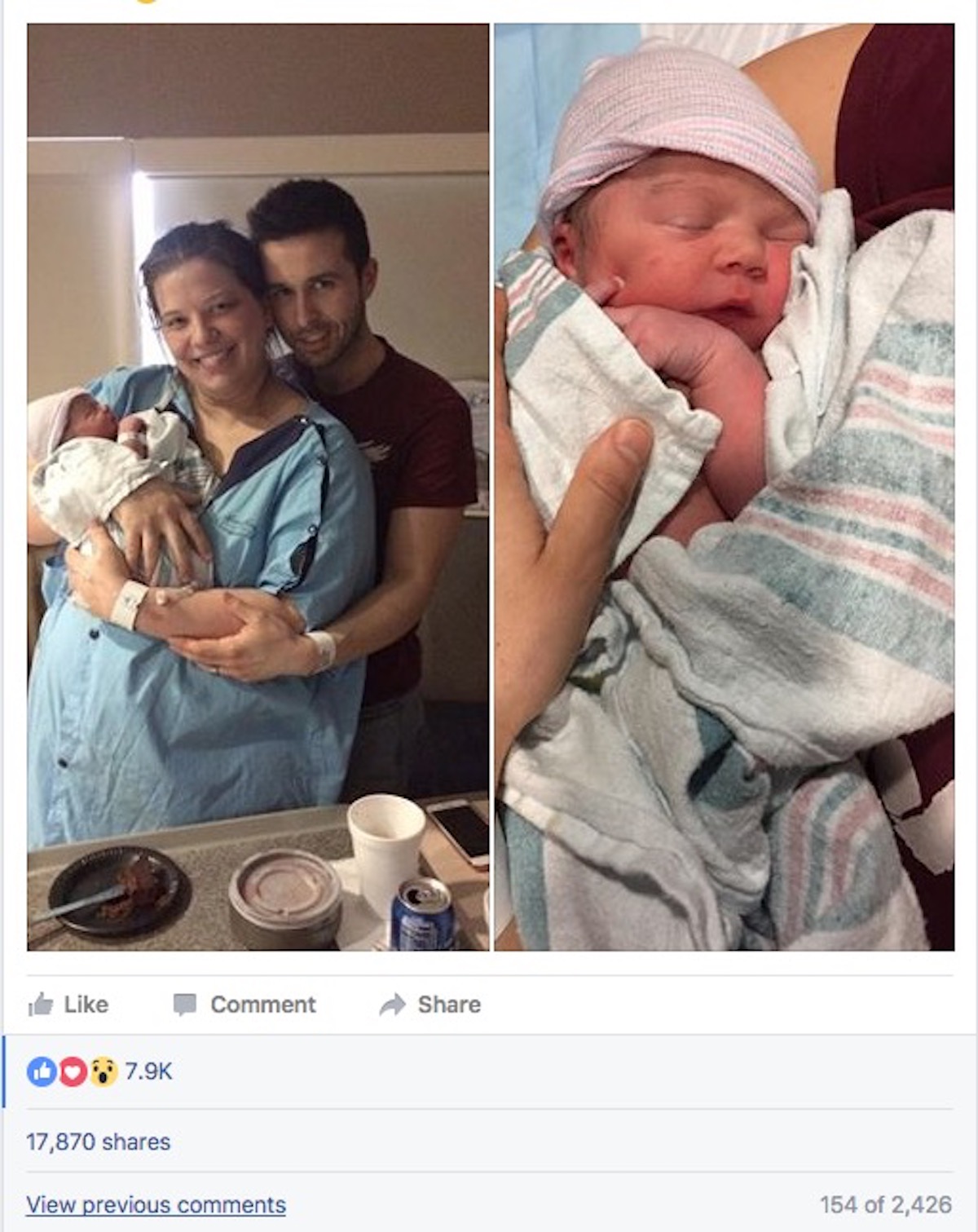
New mom Christina DePino made major waves on the internet after posting an important warning about a terrifying condition that many pregnant women don't know about.
After Christina and her husband Aaron welcomed their new daughter into the world a few weeks early, Christina posted a status explaining that the early induced delivery was the result of cholestasis of pregnancy.
Her post quickly blew up on her personal Facebook page. It was shared nearly 18,000 times, with 2,400 people weighing in with comments applauding Christina for spreading the word.
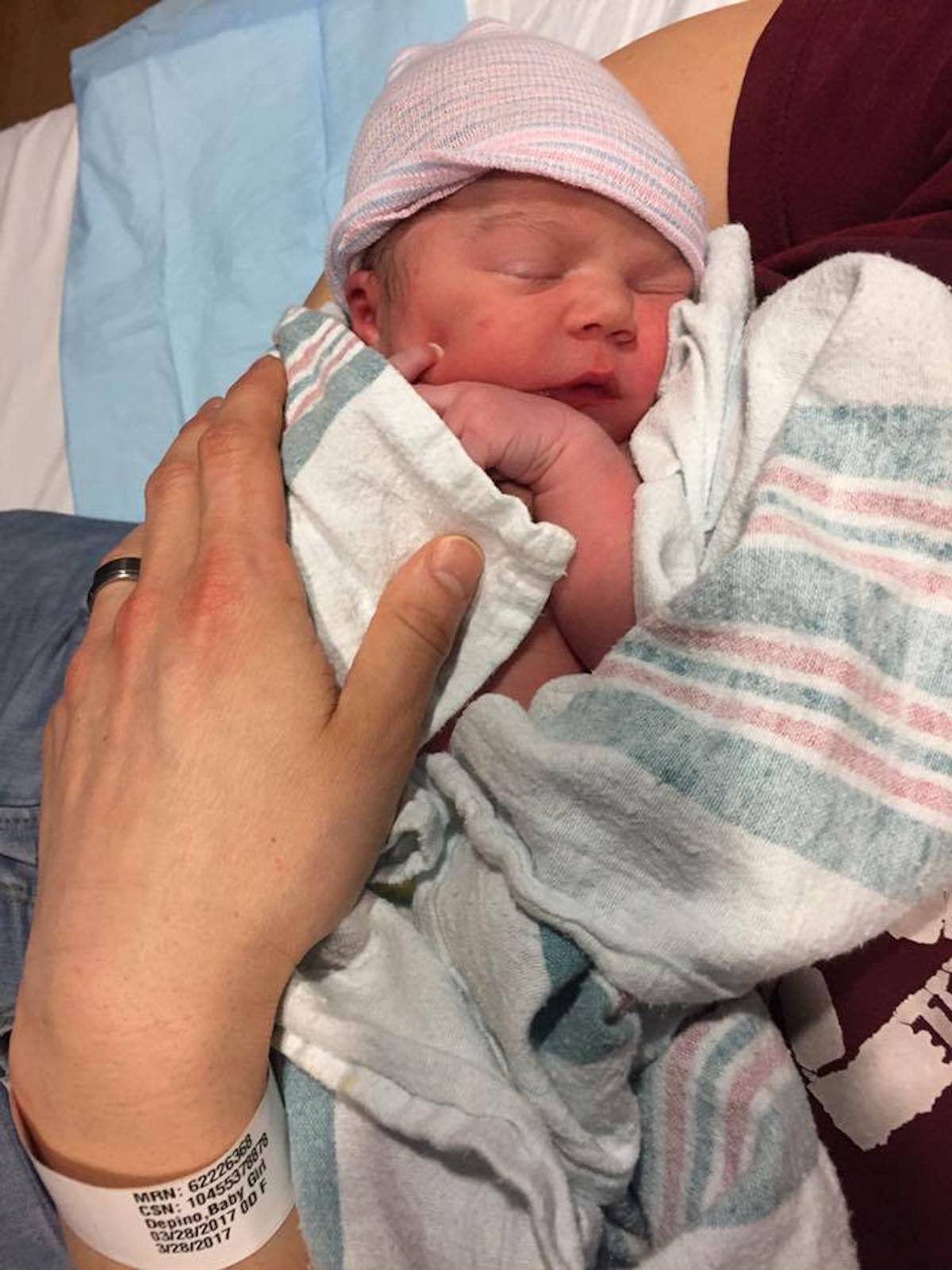
The post features two gorgeous pictures of the little family of three immediately post-partum.
Christina also added a caption full of important information for expectant moms everywhere.
She writes:
If you’re pregnant & you’re itching REALLY bad, don’t ignore it!!
Started having severe itching a few weeks ago (it was keeping me up at night).
Thanks to a little Facebook complaining and the urging of Jennifer, Britney & Monica, I got the itch checked out & found out I had pregnancy cholestasis.
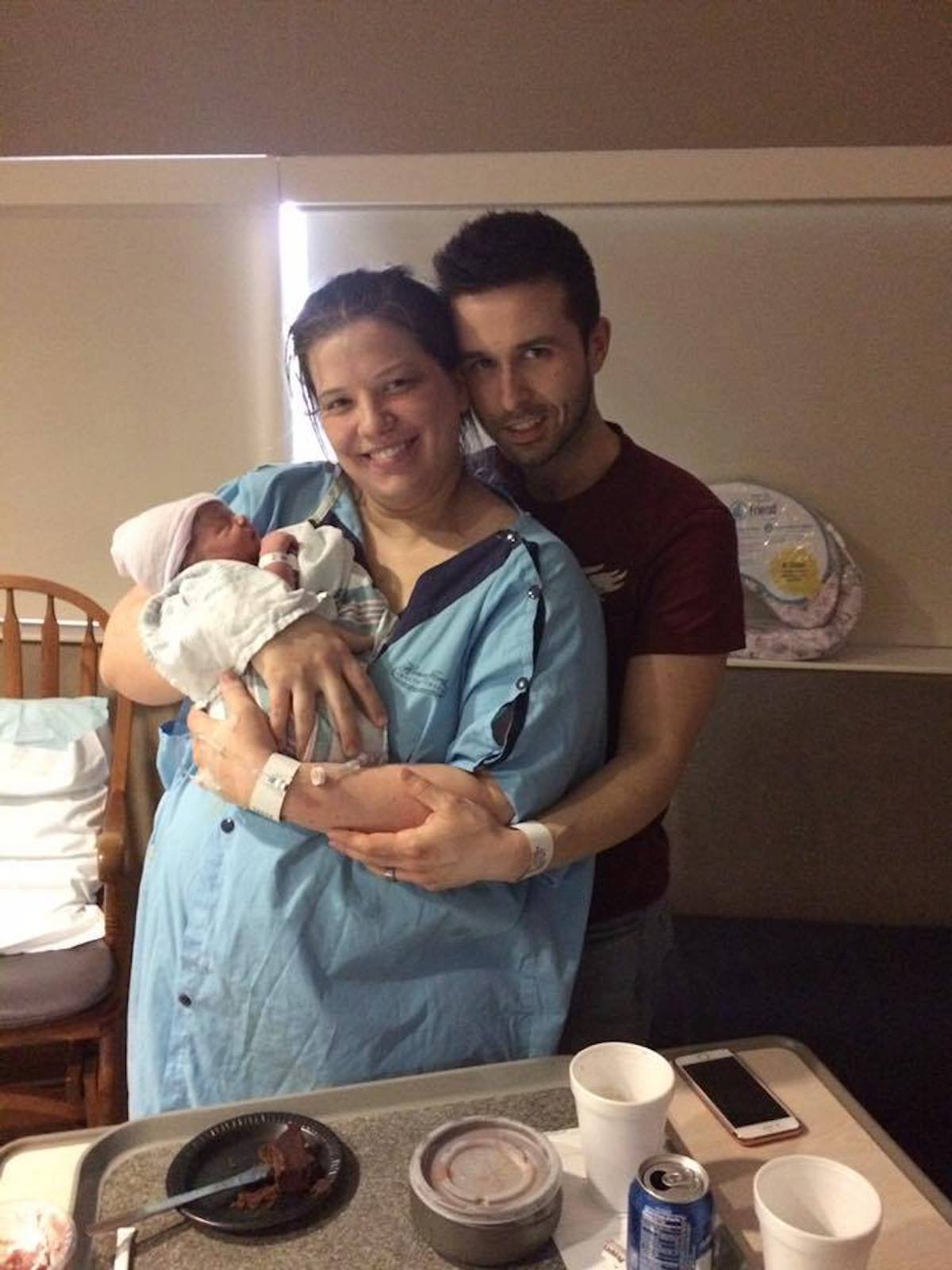
[It] is basically harmless for me — except for the crazy itching — but could have caused a stillborn after 37 weeks!!
I was officially diagnosed last week and had to get her out this week! We are so blessed!
Thanks guys for giving some amazing advice which may have just saved our precious girl's life!
Yeah We are SO BLESSED & in awe!!!
(Now I will be the crazy lady running around telling all the preggie ladies to beware!)
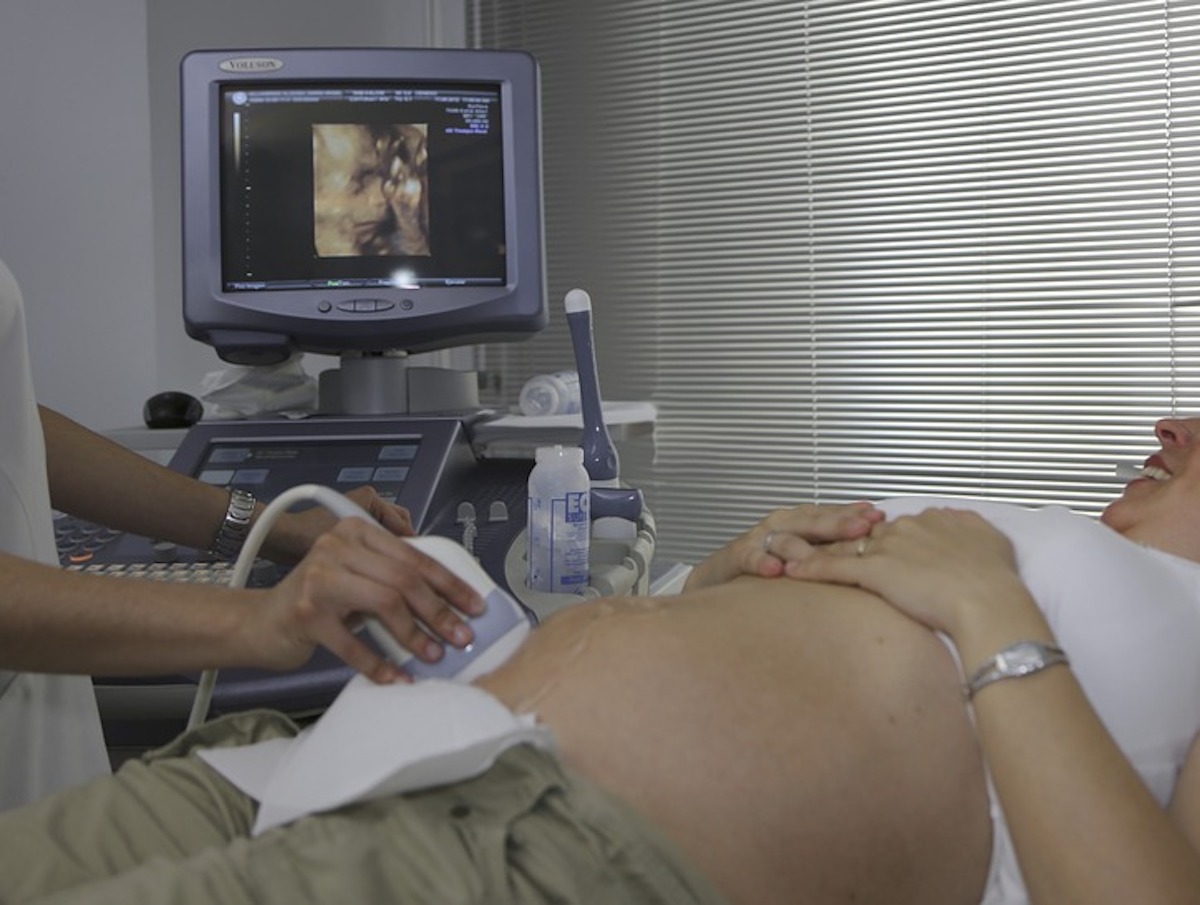
The DePinos chronicled their first pregnancy on a YouTube channel. There, Christina explains that after getting her diagnosis of cholestasis of pregnancy confirmed, she had to go ahead and get induced at 37 weeks.
Fortunately, their little one was born just fine, arriving a few weeks early to make sure that the cholestasis didn't impact the final weeks of pregnancy.
According to the Mayo Clinic, obstetricians almost always recommend early, induced delivery in cases of cholestasis of pregnancy.
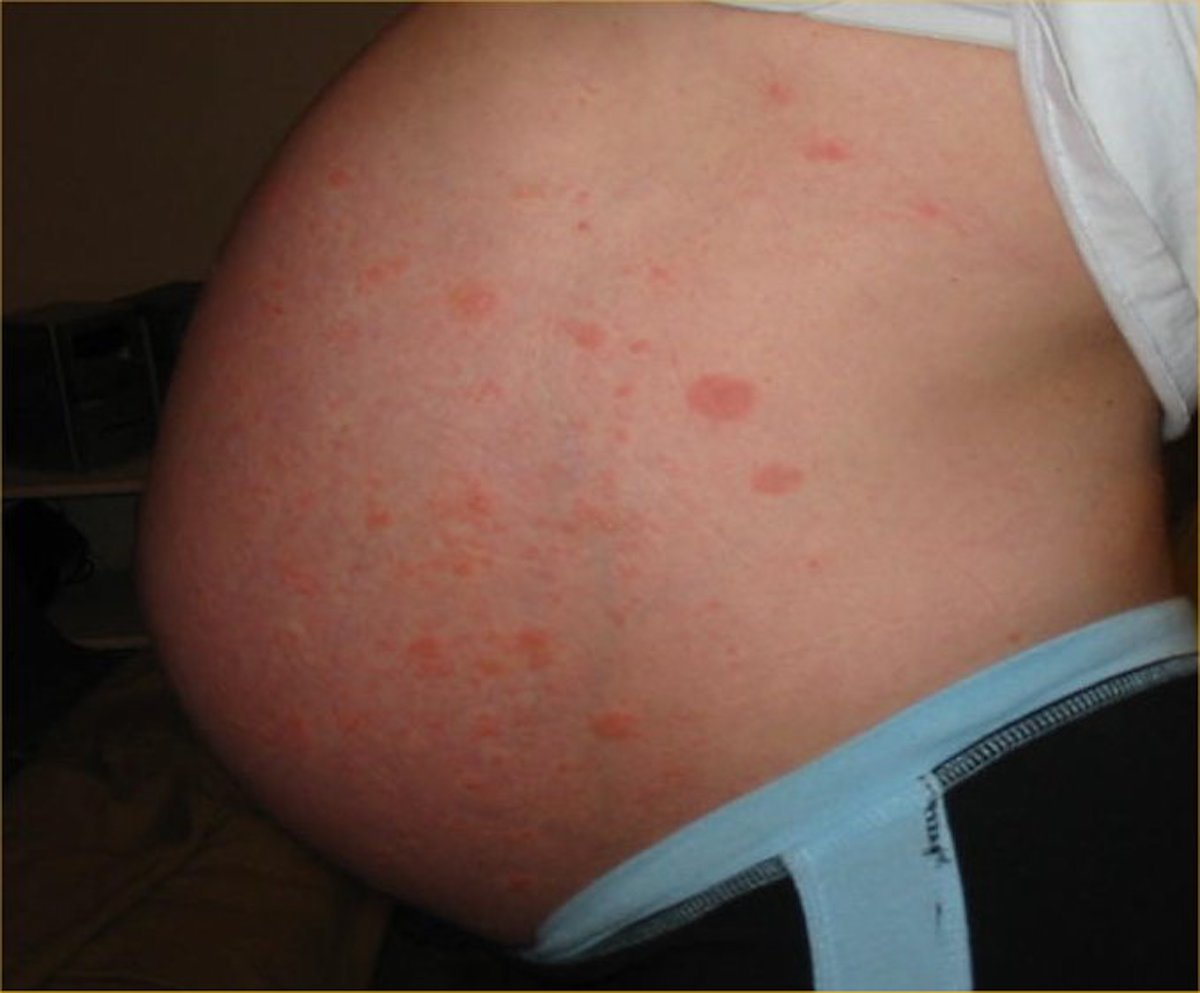
Cholestasis is a common condition where the flow of bile in the body is interrupted, causing it to build up in the liver. It can happen in anyone, not just pregnant women.
However, pregnant women are at risk for developing cholestasis in the final months of pregnancy.
It causes intense itching in the hands and feet (as happened with Christina), and it can sometimes cause a rash that may be confused with PUPPP.
Cholestasis doesn't usually hurt Mom in the long-term. However, it does increase the risk of the baby voiding meconium into the amniotic sac.
If the baby takes in the meconium, it can lead to trouble breathing, or even late stillbirth.
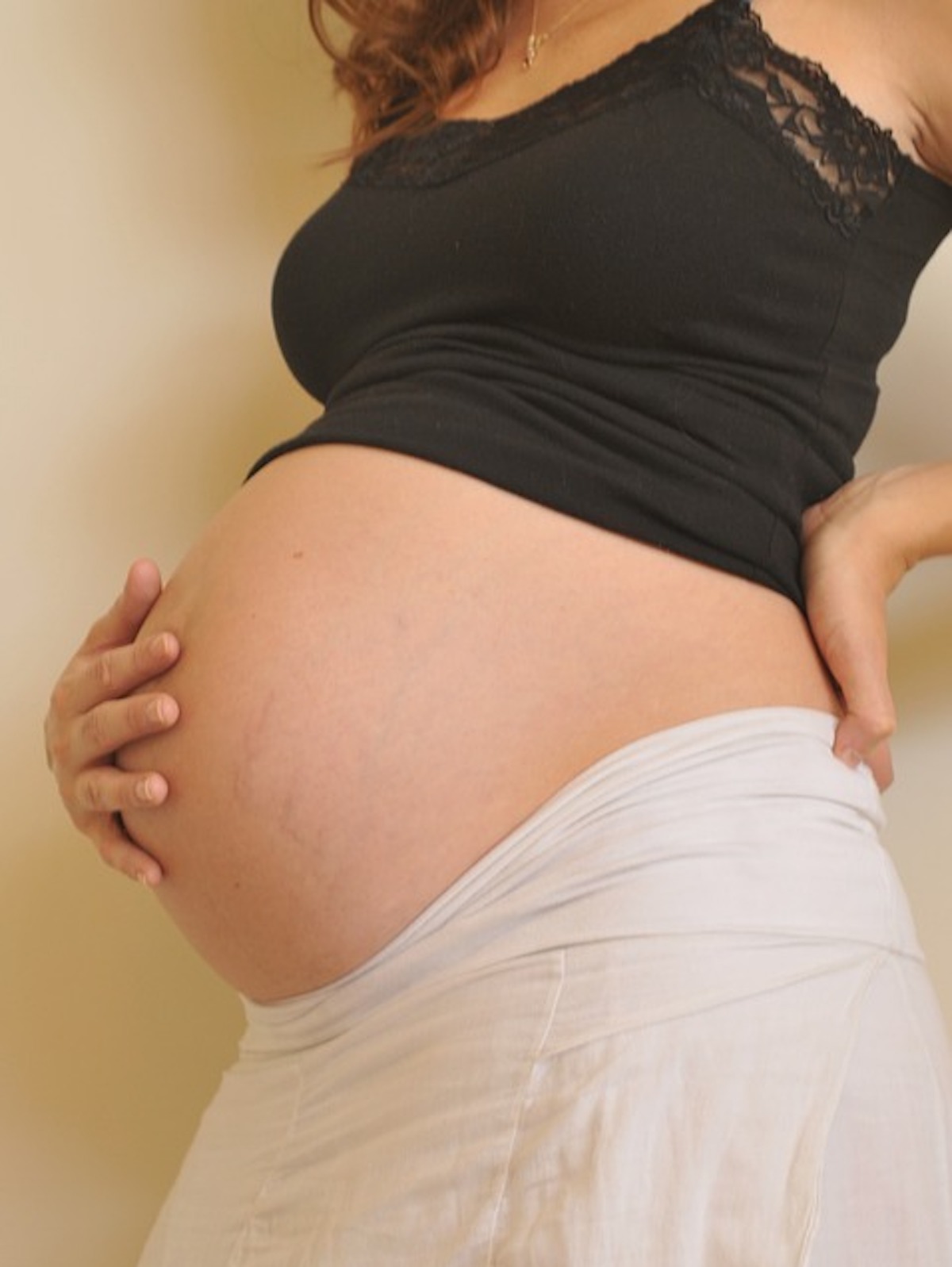
Christina is working hard to spread the message about the risks and dangers of cholestasis of pregnancy to all other expectant moms.
She almost dismissed the sensation of itchiness as just another weird and harmless pregnancy symptom. Now, she considers it a "blessing" that she decided to trust her gut and ask her doctor, knowing that acting fast may have saved her baby's life.
Make sure to SHARE this article and spread this life-saving information far and wide!




